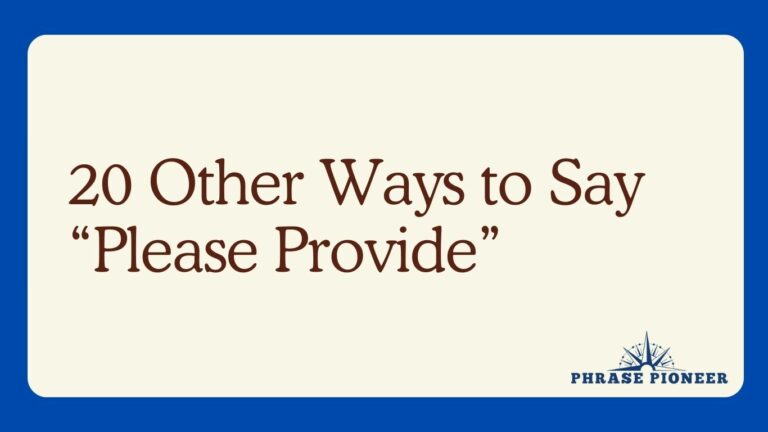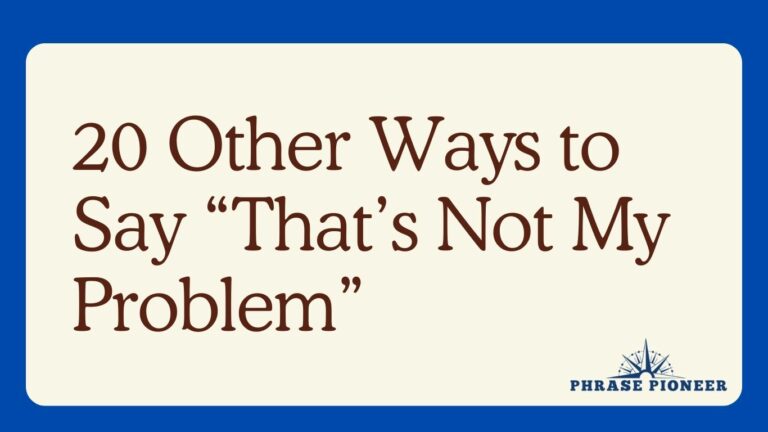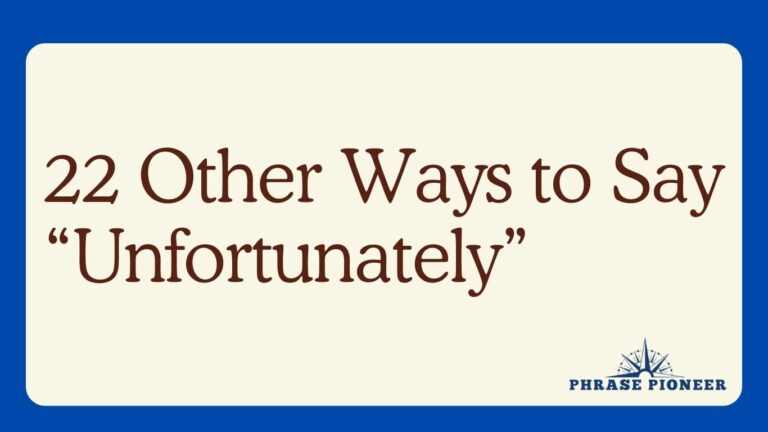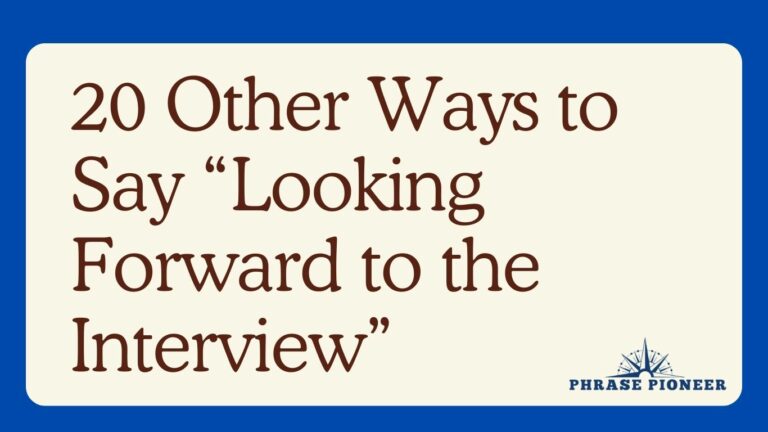20 Other Ways to Say “At Your Convenience”
The phrase “at your convenience” is a polite and considerate way to defer to someone else’s schedule and time, often used to suggest that the recipient can respond or take action whenever it suits them best.
In professional and personal interactions, such a phrase helps maintain courtesy and respect for others’ priorities. However, repeatedly using the same phrase can become repetitive and may not fit every context.
Below are 20 alternative ways to convey this sentiment, each framed to match different situations and enhance your rapport with the receiver.
Formal Alternatives
At Your Leisure
Example: “Please feel free to review the contract at your leisure.”
Explanation: This phrase conveys that the person can address the task in a relaxed manner, whenever they have free time.
When It Best Suits Your Schedule
Example: “We can arrange the meeting for when it best suits your schedule.”
Explanation: It leaves the decision of timing to the other person, showing full flexibility to their availability.
As It Is Convenient for You
Example: “Submit the report as it is convenient for you.” Explanation: This phrase is another way of saying they have the freedom to choose the timing according to their convenience.
At a Time of Your Choosing
Example: “I await your decision at a time of your choosing.” Explanation: This phrase places the onus of timing on the recipient, which can be empowering and respectful.
In Your Own Time
Example: “Please complete the orientation module in your own time.” Explanation: It indicates there is no pressure to rush, and the person can take as long as they need.
Casual Alternatives
Whenever Works for You
Example: “Let’s go out for lunch, whenever works for you.” Explanation: This is an informal way of suggesting to meet up or do something, leaving the decision up to the other person.
Whenever You Get a Moment
Example: “Call me back whenever you get a moment.” Explanation: It’s a casual approach that suggests a brief amount of the recipient’s time and can be taken lightly.
Whenever You’re Up for It
Example: “We can start planning the trip whenever you’re up for it.” Explanation: This imparts a sense of enthusiasm, merged with the ease of deciding when to engage in the activity.
When You Feel Like It
Example: “Start reading the book when you feel like it, no hurry.” Explanation: It suggests action based on the recipient’s mood or inclination, emphasizing comfort and absence of urgency.
Your Call on the Timing
Example: “Let me know what you decide; your call on the timing.” Explanation: This indicates that the timing for decision-making is entirely in the hands of the other person.
Polite Suggestions
As Your Time Allows
Example: “Please review our policy updates as your time allows.” Explanation: This polite suggestion implies that the task can be undertaken when they have a spare moment.
When Convenient for You
Example: “The offer is open; please sign up when convenient for you.” Explanation: It’s a straightforward alternative that maintains politeness and minimizes pressure.
Should Your Schedule Permit
Example: “Should your schedule permit, we’d love for you to join the committee.” Explanation: This provides a conditional invite that depends entirely on the availability of the person.
After Your Other Commitments
Example: “Feel free to reach out after your other commitments have been attended to.” Explanation: It acknowledges that the person has other priorities and can act after those are taken care of.
If It Fits Into Your Agenda
Example: “Consider our proposal if it fits into your agenda.” Explanation: It suggests consideration of the proposal only if it aligns with the person’s current plans or schedule.
Business-Focused Alternatives
According to Your Timeline
Example: “Proceed with the project according to your timeline.” Explanation: In a business context, this allows the recipient to synchronize the task with their planned agenda.
Upon Your Availability
Example: “We can hold the session upon your availability.” Explanation: This is business-friendly and indicates that the event will occur when the person is free to attend.
Following Your Schedule
Example: “We will schedule the audit following your schedule.” Explanation: This option places the planning of an event around the availability of the individual.
Aligning With Your Convenience
Example: “Let’s align the next steps with your convenience.” Explanation: It demonstrates a collaborative approach with respect to the recipient’s preferences and convenience.
After You Determine a Suitable Time
Example: “After you determine a suitable time, we can discuss the partnership further.” Explanation: The parameter for action is when the receiver has selected an appropriate time on their end.
Conclusion
Being considerate of others’ time and commitments is fundamental to respectful communication. Whether you’re in a formal setting, discussing casual plans, making polite suggestions, or navigating the specifics of business interactions, it can be helpful to have an array of expressions like “at your convenience” at your disposal. Each variant provided here offers nuanced ways to let others know you value their time and are flexible with schedules. Choosing the right expression can not only show your regard for their autonomy but can also positively influence the dynamics of your relationship or interaction.







